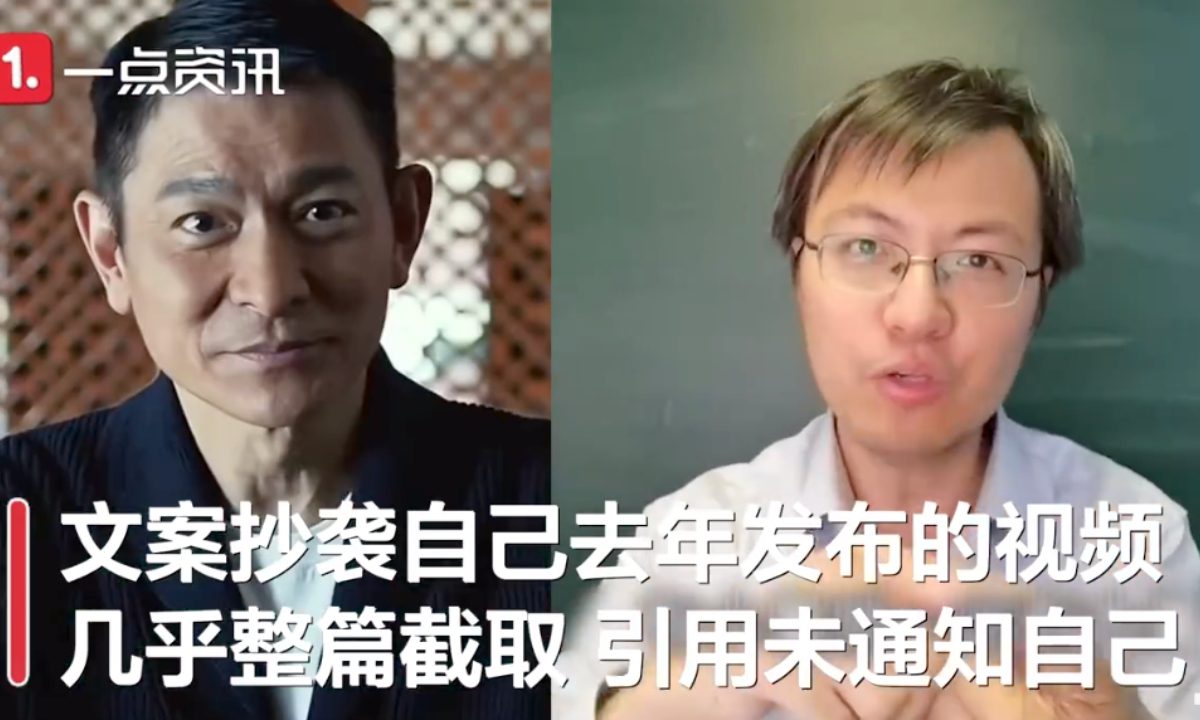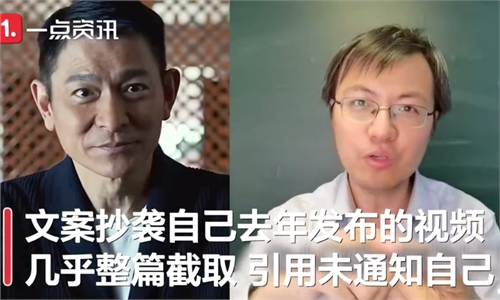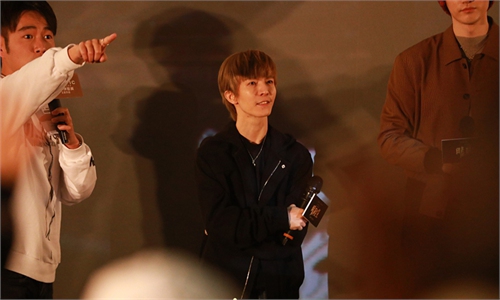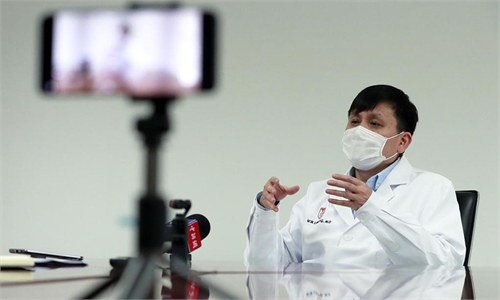
Photo: Screenshot from Sina Weibo
FAW-Volkswagen Audi apologized on Sunday after one of its video ads was accused of content plagiarism, sparking widespread criticism of the brand and heated discussion on copyright protection on China's social media platforms.Analysts said that the incident should serve as a stern warning to all businesses, both foreign and domestic ones, that copyrights and intellectual property rights must be protected, while calling for zero tolerance of content plagiarism.
FAW-Volkswagen Audi's new ad on Chinese social media featuring famous Hong Kong star Andy Lau was accused of copying from a Douyin influencer. The ad initially became a sensation for its creativity.
Lau said on Sunday that he was sorry that the ad was allegedly involved in plagiarism, adding that he has 100 percent respect for originality.
In a statement, FAW-Volkswagen Audi apologized for the trouble caused to Lau, the original author and relevant parties for its inadequate supervision and audit of the content. It said that it has removed the video from its official social media platforms.
FAW-Volkswagen Audi added that it has urged the London-based ad agency M&C Saatchi, which is in charge of video content, to investigate and deal with the incident.
The British ad group said on Sunday that the company admitted that its team lacked copyright awareness and used the content without communication with the copyright owner.
"We sincerely apologize to the original author, and promise to do our best to make up for the loss of the original author. We solemnly promise that we will respect and protect the rights and interests of original authors in advertising creation, and strictly prevent this situation from happening," M&C Saatchi said in a statement.
The ad, released on Saturday, featured Lau making an introduction to the traditional Chinese solar term Xiaoman (grain buds), which falls around May 21 every year.
On Saturday, an influencer on Chinese video platform Douyin named "Beida Mange" who has over 4 million followers criticized the brand, claiming that the video content was copied from his work.
Though the video has been removed, it has sparked outrage among Chinese netizens, who criticized the video for content infringement and plagiarism, and raised heated discussion and concern about patent and copyright protection.
The outcry topped the trending list on China's Twitter-like Sina Weibo, with nearly 240 million views as of Sunday evening.
"I've seen the video in 2021 [from Mange], and I watched the video today. I was so excited at first as I thought there was cooperation between the blogger and the brand. But I didn't expect the copying, and it is really disappointing for a car brand like this," said one netizen on Weibo.
However, in a drastic turn of events, some netizens later also alleged that Mange wasn't the first to come up with the idea and is also a copycat from others. Details of the allegation remain unclear as of Sunday.
However, the controversy continued to expand, as more brands were accused of being involved in ads plagiarism.
A BMW ads directed by Peng Yangjun, the same director of the Audi ads, were removed from multiple platforms, chinanews.com reported.
Though it was M&C Saatchi that was said to have produced the ad, FAW-Volkswagen Audi also has an obligation to supervise and be responsible for its advertising content, analysts said.
"This case involves the copyright infringement of others," Zhang Hongbo, director-general of the China Written Works Copyright Society, told the Global Times on Sunday.
The advertiser, FAW-Volkswagen Audi, should bear the legal responsibility for the infringement, including a public apology and financial compensation, said Zhang.
Some analysts believed that the apology from FAW-Volkswagen Audi was not sincere enough.
"It feels like the company is trying to shift its responsibility to a third-party agency," Liu Dingding, a Beijing-based independent market analyst, told the Global Times on Sunday. "Audi's core executives must take responsibility for this."
The incident should also serve as a warning for the whole industry to build mechanisms to protect copyrights and intellectual property rights, Liu added.
Apart from the legal issue, the scandal could also cause potential harm to the brand image of the carmaker, as China is Audi's most important market, Liu said.
Audi delivered 701,289 vehicles in the Chinse market in 2021. That was a decline of 3.6 percent compared with the record deliveries in 2020.



